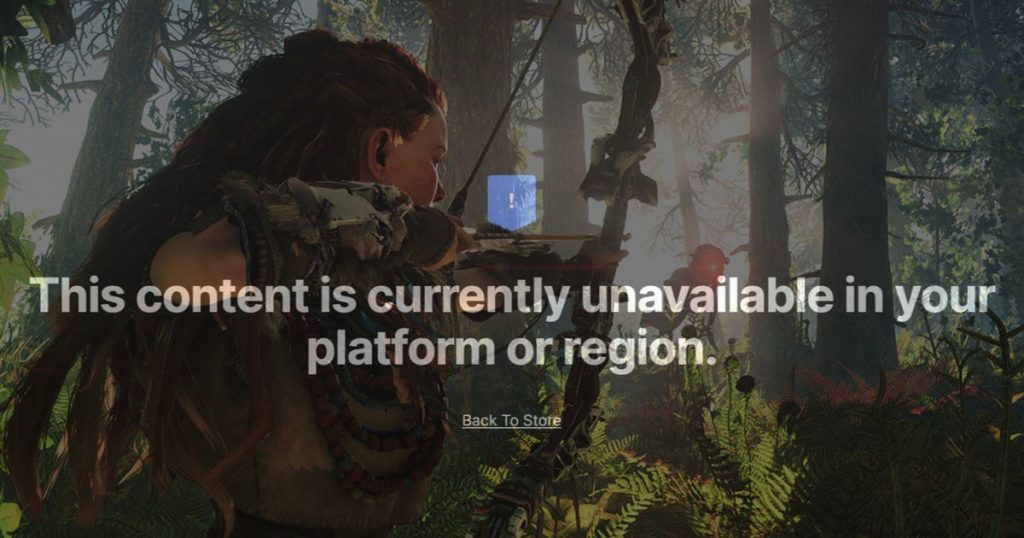
With the impending release of Horizon Zero Dawn Remastered, Sony has elected to include the open-world action game into the list of games that eschew millions of players in over 170 countries around the world.
The reason, of course, is the PlayStation Network account requirement, something the original Horizon Zero Dawn release on PC did not require. The problem? You can no longer buy the 2020 release.
Players, via ResetEra, noticed that Sony has removed the ability to purchase Horizon Zero Dawn on Steam and the Epic Games Store, in preparation for Remastered’s release on October 31. While the game’s page on Steam remains, you’ll no longer find an ‘Add to Cart’ button.
Anyone who wants to play Horizon Zero Dawn on PC now must pre-purchase Horizon Zero Dawn Remastered, assuming they do not already own the 2020 release. Among a few enhancements, such as rerecorded dialogue and updated animations, the sticking point here is the remaster’s requirement of a PlayStation Network account.
PSN is a service only officially available in a handful of countries, which means that the remaster is now unavailable for purchase in over 170 countries. This is the same list of countries that recently couldn’t purchase God of War Ragnarok, or Ghost of Tsushima Director’s Cut before it.
You may recall that Helldivers 2 was the first game to suffer as a result of the decision to require a PSN log-in. Sony mandated it weeks after the game’s release, too, causing a bit of a PR disaster for a company that seems intent on creating them on PC.
That has since become a requirement for every future Sony release on PC, which includes the upcoming Horizon Zero Dawn Remastered, of course. The funny thing about all this is that the lack of official PSN support never stopped players in those countries from being able to buy and play Sony games, whether on PC or on any PlayStation console.
Preventing people form being able to spend money on PlayStation games overwhelmingly affects players in regions where PlayStation is the dominant console. Large parts of the Middle East, for example, are – and have always been – PlayStation-aligned, and this popularity is a major reason why Sony’s console brand continues to have staying power outside of the United States and Europe.
PlayStation Network accounts have never been available in those places, either; people just created US/UK/JP accounts, bought prepaid cards for online purchases, or simply stuck to physical games.
It goes without saying that locking millions of players out of those games does the opposite of expanding the PlayStation audience. It is genuinely mind-boggling why Sony felt the need to do this in the first place; all those players could’ve simply continued using their existing UK/US/JP accounts and enjoyed the company’s games, whereas now they’ve lost that ability.











